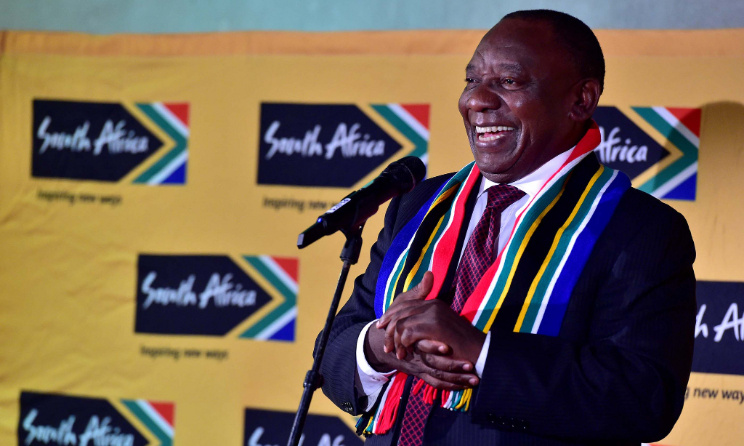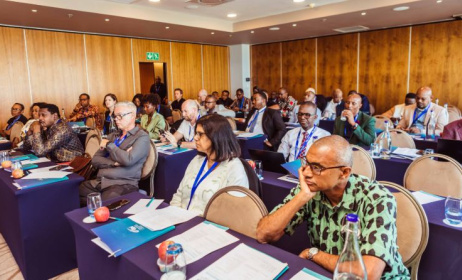South African copyright proposals anger Hollywood
By Rory O'Neill
The US film and music industry is putting pressure on the South African and US governments to axe the African country’s proposed copyright.
 South African President Cyril Ramaphosa.
South African President Cyril Ramaphosa.
The copyright amendment bill has generated controversy both in the country and abroad. It would adopt an extensive fair use exception, including research, criticism, reporting of current events, parody and preservation of library collections.
The Office of the US Trade Representative (USTR) last month announced a review of whether South Africa could participate in a duty-free trade scheme, owing to concerns from record labels and film studios about the proposed law.
The International Intellectual Property Alliance (IIPA) has led criticism of the new law, calling it an “ill-considered importation of the US ‘fair use’ rubric”.
The IIPA contains major US copyright-owners such as the Motion Picture Association of America (MPAA) and the National Music Publishers' Association (NMPA).
In a submission to the USTR, the IIPA argued that the fair use exception was overly broad and incompatible with South Africa’s “international obligations” under TRIPS and the WIPO Copyright Treaty.
ReCreate South Africa, a group representing artists and creators, has led support of the law, claiming that South Africa is currently operating under “apartheid-era legislation which favours historical and international monopolies which have control of money and power”.
The group has urged South African President Cyril Ramaphosa to approve the bill, which has also received support from leading members of Treatment Action Campaign, which primarily focuses on improving treatment of HIV.
Ramaphosa has been under pressure from political opponents in South Africa, such as the Democratic Alliance, who are urging him to send the law back to Parliament for revision.
Rehad Desai and Ben Cashdan, co-chairs at ReCreate, Anele Yawa, general secretary of the Treatment Action Campaign, and postdoctoral researcher at the University of Oxford Sanya Samtani, penned an op-ed for the Daily Maverick in support of the bill.
In the piece, they urged Ramaphosa to “stand up to Trump and Big Hollywood” and approve the law.
The Library Copyright Alliance (LCA), a group of US library associations, has also weighed in behind the law.
In a letter to Ramaphosa sent last Wednesday, 6 November, the LCA said that the IIPA’s arguments to the USTR were “ridiculous”. In particular, they highlighted the IIPA’s claims that South Africa did not have the benefit of “decades of legal precedent” that underpin the fair use doctrine in the US.
In the letter, the LCA said: “Via the Internet, South African judges would have easy access to hundreds of fair use decisions in the US, as well as the opinions by judges in the other jurisdictions that have fair use exceptions.”
Consensus on the bill remains elusive. An opinion piece in the Mail & Guardian newspaper said that the bill marked a “guaranteed path to the recolonisation of the education system”.
In the article, Collen Dlamini, convenor of the Coalition for Effective Copyright in South Africa, argued that if the bill was adopted, South Africa’s educational curriculum would be dominated by foreign content. He also argued that the bill would mainly benefit large tech companies at the expense of young, black South African creators whose jobs and remuneration were at risk.
This article first appeared on World Intellectual Property Review.



































Comments